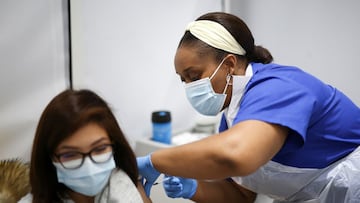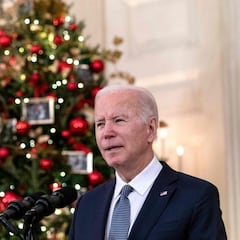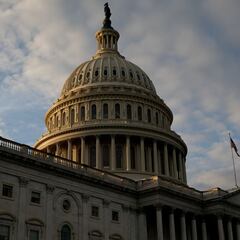How long after the booster shot are you fully vaccinated?
With the Omicron variant spreading rapidly, many who have access, are rushing to get their vaccines. How long does it take to provide protection?


With the Omicron variant leading to the closure of borders around the world, many who have access to vaccines are eager to get their first, second, or third dose. However, one should be aware that the vaccines take around two weeks before they can fully protect the person inoculated.
Protection after the first and second dose
According to the US Centers for Disease Control and Prevention (CDC), a person is fully vaccinated two weeks after they receive their second dose of either Pfizer or Moderna’s vaccines or the single dose of the Johnson & Johnson vaccine. Until the two weeks have passed “regardless of your age, you are NOT fully vaccinated,” and the agency recommends that you “keep taking all precautions until you are.”
Protection after the third or "booster" dose
The situation in regards to booster shots is similar to the initial shots.
Those looking to get a third dose are at an advantage in that they have some remaining protection for their initial vaccinations. However, unlike those who are unvaccinated, you can maintain the same level of precautions taken before you received the booster. Depending on your risk to the virus, these mitigation measures like masking and social distancing will vary from person to person.
White House chief medical advisor Dr. Anthony Fauci said studies strongly suggest that booster shots will give you cross protection against a "wide range" of COVID-19 variants, but noted it has not been proven yet. https://t.co/musYUx261d
— NECN (@NECN) December 4, 2021
Are vaccines effective against the Omicron variant?
It is still too soon to tell.
Pfizer and Modern have said that by mid-December they aim to have published new data on the efficacy of their vaccines. Both companies have also made public plans to develop new versions of the vaccine that would be able to protect against new variants.
Regardless, public health experts advise that people continue to get their vaccines. At this point, vaccines have shown to be the best tool for reducing severe infections that can lead to hospitalization and deaths.
Will the vaccine patents be lifted?
One of the main reasons why variants continue to pop up relates to the inequalities in global vaccine distribution. The virus will continue to mutate and spread if it is given the opportunity, showing that a high level of unvaccinated individuals anywhere is a threat to people everywhere.
While President Biden has said publicly he supports the lifting of intellectual property rights in regard to covid-19 vaccines, he could do more. On 25 November, the Financial Times reported that negotiations at the World Trade Organization over the issue of patents were "stuck." Earlier this year, South Africa and Brazil had "sweeping" proposed that would include the lifting of patents on vaccines and other covid-19 treatments, but it has been rejected by the European Union and Switzerland.
The United States has said it supports the proposal but has not released any communication on the type of proposal it would accept and has remained rather silent as negotiations have progressed.
Vaccine manufactures are projected to make billions in profits off of the vaccine.
A large portion of these profits are the result of intellectual property rights that forbid the development of a generic version of the vaccine, meaning that they have enormous market power. Additionally, as wealthy countries have made it extremely difficult for global initiatives like COVAX to purchase vaccines by outbidding them in the market, the manufacturers are taking in even more money.
Related stories
Gordon Brown, the United Nations Special Envoy for Global Education wrote recently that there are "an estimated 200 million shots are lying unused – some near to being written off as they reach their “use by” dates." Brown highlighted that if these vaccines had been or were distributed to African countries, "quadruple the numbers of African vaccinated."
Vaccine hoarding is a scandal. But it can also be fixed – fast.
— Tortoise (@tortoise) December 3, 2021
As @gordonbrown has written for Tortoise, we must “abandon the medical protectionism and vaccine nationalism of the last year, and open a new chapter in international cooperation.”https://t.co/6lqh7Rk7Jr
It is clear the current market forces at play are not going to halt the virus' spread and in the meantime, some companies are raking in billions as some of the most economically vulnerable people are left completely abandoned.

